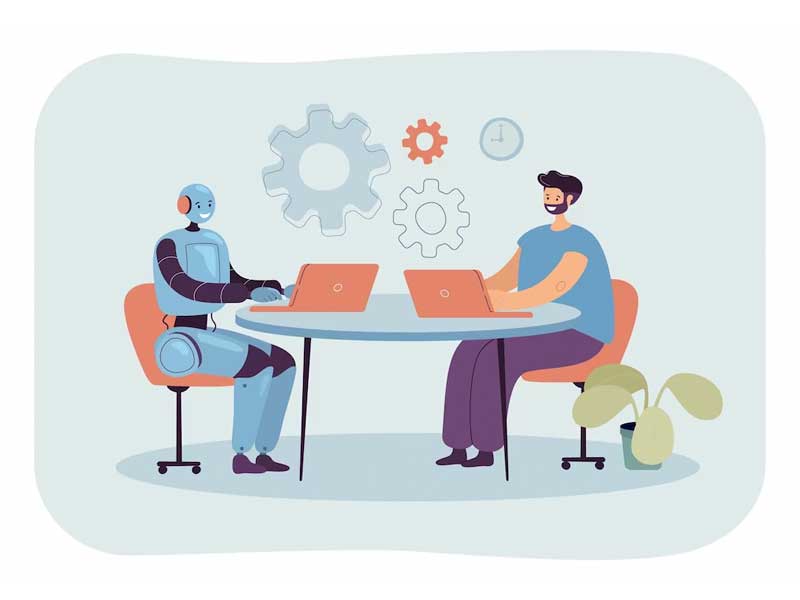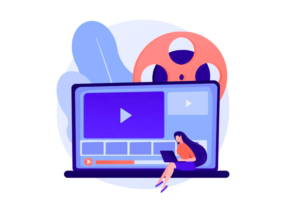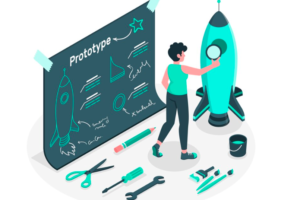In today’s rapidly evolving job market, the recruitment process is undergoing a profound transformation. One of the most notable changes is the emergence of AI chatbots as the new job interviewers. These intelligent virtual assistants are revolutionizing the way companies hire talent, making the process more efficient, consistent, and accessible than ever before. In this article, we will delve into the world of AI chatbots, exploring how they are reshaping the job interview landscape and the implications of this technological shift.
The Rise of AI Chatbots in Recruitment
The traditional job interview process has long been characterized by human-to-human interactions. However, as technology advances, organizations are increasingly turning to AI chatbots to streamline their recruitment efforts. These AI-powered interviewers are designed to engage with candidates, ask relevant questions, and assess their qualifications without the need for human intervention.
Several factors have contributed to the rise of AI chatbots in recruitment:
Efficiency AI chatbots can conduct interviews 24/7, eliminating scheduling conflicts and speeding up the hiring process. This efficiency is especially crucial in industries with high employee turnover rates or urgent staffing needs.
Consistency Human interviewers may unintentionally introduce bias into the hiring process, whether through tone of voice, body language, or personal preferences. AI chatbots, on the other hand, ask the same questions in the same way to every candidate, ensuring a consistent and fair evaluation.
Accessibility AI chatbots make interviews more accessible to candidates. They can be conducted remotely, allowing individuals from diverse geographical locations to participate in the hiring process. This accessibility promotes inclusivity and diversity in the workplace.
How AI Chatbots Conduct Interviews
AI chatbots employ natural language processing (NLP) and machine learning algorithms to engage with candidates. Here’s how a typical AI chatbot interview works:
Initial Interaction Candidates are often greeted by a friendly AI chatbot that introduces itself and explains the interview process. This initial interaction sets the tone and helps candidates feel more at ease.
Questioning The chatbot asks a series of pre-defined questions tailored to the specific job role. These questions can cover a wide range of topics, from technical skills to behavioral competencies. Candidates respond to each question using text or voice input.
Evaluation As candidates answer questions, the chatbot analyzes their responses in real-time. It assesses not only the content of their answers but also their communication skills, confidence, and demeanor.
Feedback After the interview, candidates may receive immediate feedback, highlighting areas of strength and areas that need improvement. This feedback can be invaluable for candidates looking to enhance their interview skills.
Advantages of AI Chatbot Interviews
The adoption of AI chatbots as interviewers brings several advantages to both employers and candidates:
Time and Cost Savings AI chatbots significantly reduce the time and cost associated with the hiring process. They can conduct multiple interviews simultaneously, allowing organizations to assess a larger pool of candidates quickly.
Elimination of Bias By following a predefined script and evaluation criteria, AI chatbots minimize unconscious bias in the hiring process. This contributes to fairer and more inclusive hiring decisions.
Consistency AI chatbots ensure that every candidate receives the same interview experience, eliminating variations in interviewer behavior that can affect outcomes.
Scalability As businesses grow, their hiring needs often increase exponentially. AI chatbots can scale seamlessly to accommodate a growing number of interviews without compromising quality.
Enhanced Candidate Experience Candidates appreciate the convenience and accessibility of AI chatbot interviews. They can participate in interviews from the comfort of their homes, reducing the stress associated with in-person interviews.
Challenges and Considerations
While AI chatbots offer numerous benefits, they are not without challenges and considerations:
Lack of Human Interaction The absence of human interaction in the interview process can be a drawback. Some candidates may prefer the rapport and nuanced communication that comes with speaking to a human interviewer.
Ethical Concerns The use of AI in recruitment raises ethical concerns related to data privacy, algorithmic bias, and fairness. Organizations must ensure that their AI chatbot interviews adhere to ethical guidelines.
Technical Issues AI chatbots may encounter technical glitches or misunderstand candidate responses, leading to frustration for both candidates and employers.
Limited Scope While AI chatbots excel in structured interviews, they may struggle with assessing soft skills or situational judgment, which require more nuanced evaluation.
The Future of AI Chatbots in Recruitment
Despite the challenges, the adoption of AI chatbots in recruitment is expected to grow. As technology continues to advance, AI chatbots will become more sophisticated, addressing current limitations and expanding their capabilities.
Here are some predictions for the future of AI chatbots in recruitment:
Personalization AI chatbots will become better at tailoring questions and assessments to each candidate’s unique profile and the specific job role, enhancing the interview experience.
Integration AI chatbots will seamlessly integrate with applicant tracking systems (ATS) and other HR software, streamlining the entire hiring process.
Enhanced AI Capabilities Advancements in AI will enable chatbots to analyze non-verbal cues, such as facial expressions and tone of voice, providing a more comprehensive assessment of candidates.
Ethical AI Organizations will prioritize ethical AI practices, ensuring that chatbots adhere to fairness and transparency standards while protecting candidate privacy.
Conclusion
AI chatbots are undeniably transforming the landscape of job interviews. Their efficiency, consistency, and accessibility are reshaping how companies identify and select talent. While challenges exist, ongoing technological advancements promise to address many of these issues, making AI chatbots even more valuable tools in the recruitment process.
As organizations continue to embrace AI chatbot interviews, it’s crucial to strike a balance between the advantages of automation and the importance of maintaining a human touch in the hiring process. Ultimately, the successful integration of AI chatbots into recruitment strategies will lead to more efficient, equitable, and effective hiring practices in the future.





